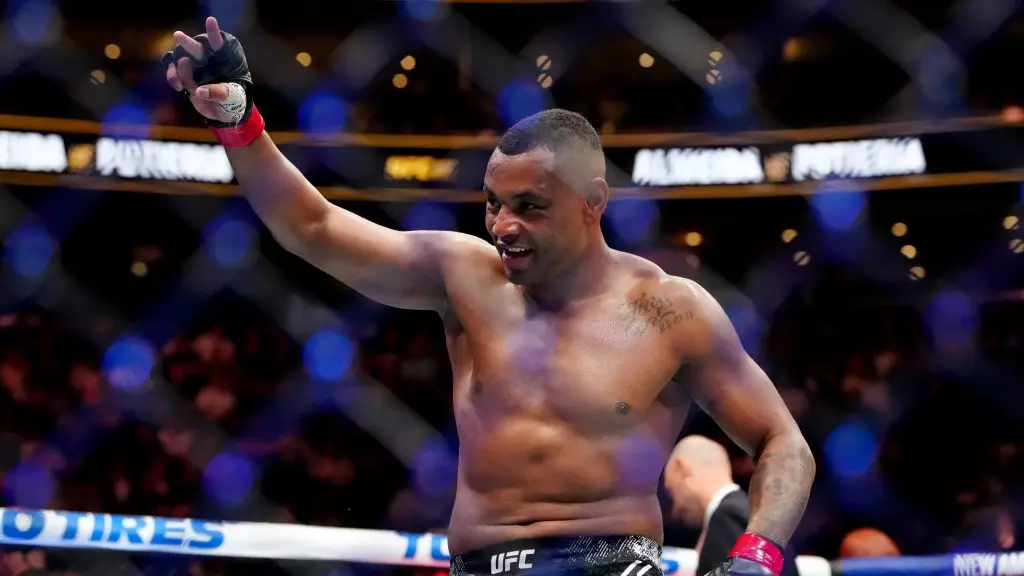In a highly anticipated matchup at UFC 307 held in Salt Lake City, César Almeida showcased a significant level of skill and determination in his bout against Ihor Potieria. Almeida emerged victorious with a unanimous decision after three rounds of intense action. However, despite his commanding performance, much of the post-fight discussion centered on the officiating rather than the fight itself. Referee Dave Seljestad’s decisions throughout the bout drew scrutiny, as he frequently intervened to separate the two fighters and addressed multiple fouls that occurred during the match.
The performance by referee Seljestad raised eyebrows among viewers and commentators alike, including UFC’s Jon Anik, who voiced concerns during the broadcast. The interruptions from the referee meant that the fight’s flow was disrupted, leading to questions about the effectiveness of officiating in maintaining an uninterrupted competition. Almeida, however, downplayed the discrepancies in officiating, stating that the challenges fighters experience in the cage often lead to fatigue—which can, in turn, influence how a fight is perceived by judges.
While Almeida showcased notable resilience and strategy throughout the fight, he maintained that the fatigue factor from both fighters was a significant contributor to the match dynamics. His ability to adjust and implement a well-defined game plan was critical in securing the victory. Almeida emphasized the importance of staying disciplined, maintaining distance, and engaging effectively with kicks, which he credited for his success against Potieria. This tactical approach demonstrated his growth as a fighter, especially following his previous split decision loss to Roman Kopylov.
Following the fight, Almeida was visibly pleased with his performance but showed concern for a potential injury, as he was seen with a black wrap on his right hand. He expressed uncertainty regarding the severity of the injury, indicating the need for a medical evaluation. Regardless of his physical condition, Almeida expressed his eagerness to return to the octagon, hinting at a desire to face a ranked opponent next. With clear ambition, he stated his intent to resume training as soon as possible, potentially eyeing a fight in December or January—contingent on the health of his hand.
While Almeida’s victory represents an important milestone in his career—especially after a setback—much of the narrative was underscored by officiating controversies that lingered long after the final decision was announced. The mixed reactions from fans regarding officiating may overshadow Almeida’s achievements, but it also elevates discussions about the evolving standards in MMA officiating. Moving forward, Almeida has the opportunity not only to solidify his standing in the middleweight division but also to focus on refining his skills and further developing his strategy in preparation for more challenging opponents. The journey continues, and all eyes will be on Almeida as he attempts to carve his niche in a competitive landscape.

